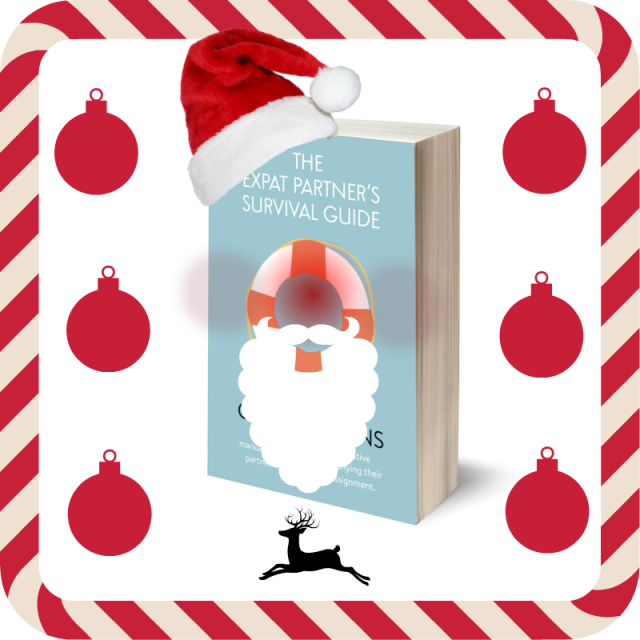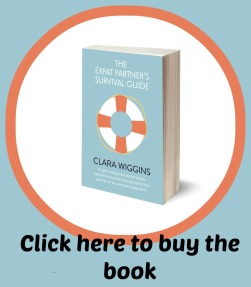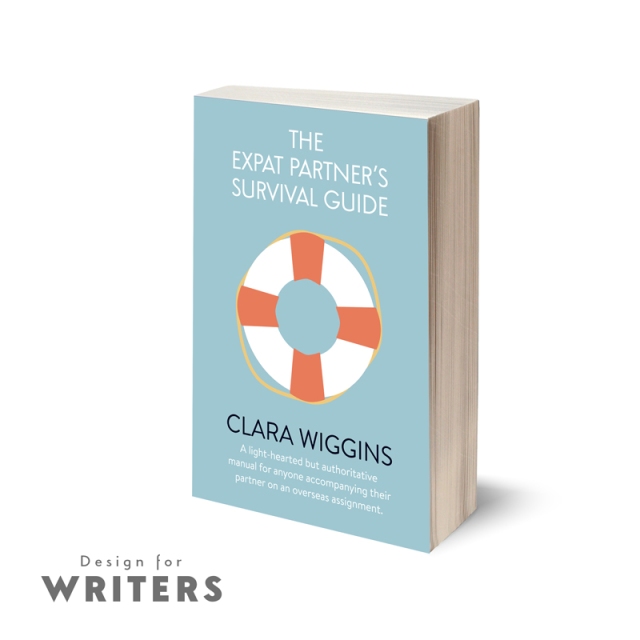Earlier this week I shared a post about the first of two “practicalities” chapters in my book – the Expat Partner’s Survival Guide. In the book, I look at what it is like when you first move somewhere and discuss some of the nuts and bolts of life as a new expat. Taking the points made in the book I wanted to look at my own experience of moving to South Africa – to test what I had written and check how I was doing so far. In my first post on this subject I looked at finding a home, furnishing it and getting around. In this post I move on to the second chapter on practicalities – shopping, learning the language and keeping safe.
——————
Shopping
It’s interesting how a supermarket, which at first glance seems stuffed to the rafters with food, can quickly start to drive you crazy trying to find exactly the right ingredients to make a carefully planned menu, or has everything you need except one, vital thing. This can lead to one common expat phenomenon: supermarket-hopping.
Extract from the Expat Partner’s Survival Guide, chapter 5 – Practicalities part two.
This has been exactly my experience here in Pretoria. Exactly. When we first arrived here, we were overjoyed. Compared to the supermarkets in other places we have lived (notably Islamabad and St Lucia), the choices here in South Africa are phenonemal. And I still stick by this – this is a foodies heaven in many ways and we could eat our every day for a year and still not get through all the restaurants and cafes I want to visit. There are plenty of good shops too and things like meat, wine, bread, fruit and vegetables are all bountiful.
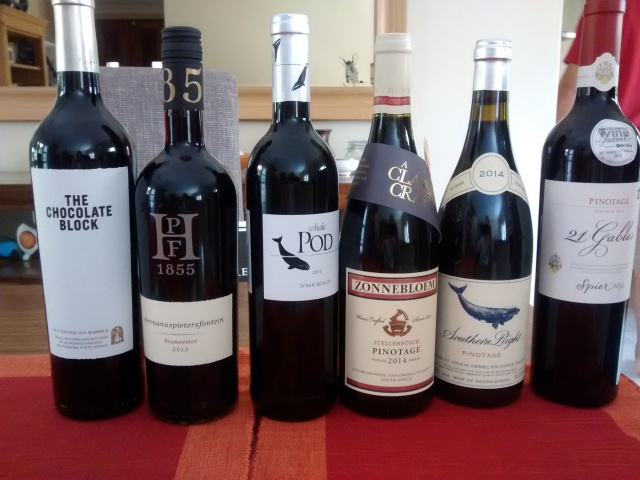
Plenty of wine here….
But now that I am out of the early, honeymoon stage, I have found irriration starting to creep in. Yes the supermarkets are good – but they are not always reliable. And you can’t usually get everything you need for a week in one place. And some ingredients are difficult to track down altogether.
Whilst I know I will find goods galore when I visit my favourite supermarket Woolworths (which is basically Marks and Spencers), they do not always have everything I need for my planned meals. The other day, for example, they didn’t have the particular type of sausages I had scheduled to give the kids that evening. It didn’t really matter, I bought them something else – but little irritations like this add up.
I have slowly started to work out where the best place to buy different things is – Hinterland for beef, Woollies for sausages and chicken, Almas butchers for pork loin, Food Lovers Market for ready-prepared food; Macro for bulk items like dishwasher tablets. In the end, I know we can get more or less everything we need here (the list I have asked my parents to bring out with them when they visit soon is very short – Yorkshire teabags, (UK) Marmite and Oxo cubes), but shopping can be very time consuming.
However, for the meat and the wine I am very, very grateful!
(One of my roadtester for the Expat Partner’s Survival Guide, Lynsay, has also written on her blog about shopping in their new location in Korea. You can read her take on this important subject here)
Language
The feeling of isolation of being a new expat in a strange country can be massively increased if you can’t interact with those around you, or if you find yourself left out of conversations because they are going on in a language you don’t know.
Extract from the Expat Partner’s Survival Guide, chapter 5 – Practicalities part two.
Boy am I lucky with this one. Everyone I have met so far here in South Africa speaks English. They might all speak about seven other languages as well, and English may not be their first language, but I have had no trouble at all being understood.
I do sometimes find it hard to know what others are saying, mind you. Firstly, I get spoken to in Afrikaans quite a lot. I was told by my English South African cousin that Afrikaans women tend to be more glamorous than their English-speaking counterparts, so perhaps the days people first try me with Afrikaans are the days when I make more of an effort. But even when people speak to me in English, I still find some of the accents very difficult to decipher.
I am getting there, but there are still many moments of “I’m sorry, what did you just say?”.
I do love all the languages here though and enjoy practising saying many of the words. Sawubona. Dumela. Molo. Unjani. And, errr, cliick! I have also found myself starting to pick up some of the South African sayings, like Just Now, and Ach, shame. Yikes!
Keeping safe
In many countries these days, you will have bars on your windows, panic rooms or parts of the houses that can be locked off from the rest, gated and guarded communities and more. This can all seem quite alarming if you’re not used to it, but it soon becomes part of life. A sad, inevitable part of life because these precautions are there as a daily reminder of how harsh life can be for many of the other residents of the city you live in.
Extract from the Expat Partner’s Survival Guide, chapter 5 – Practicalities part two.
Sadly, while we have had it easy with the language side of things here in South Africa, we certainly have not with the security. This country has a reputation for violent crime, and stats certainly back this up.
I have previously lived in Kingston, Jamaica, so had an idea what to expect here. Horror stories abound and these do lead to the creation of a “feeling of fear” that you have to live with, day in, day out. We sleep behind a keep in a house with grills, surrounded by electric fence, on a compound with a security guard. I have had to speak to the children about what to do if we get car-jacked; they also have “duck and cover” drills at school.
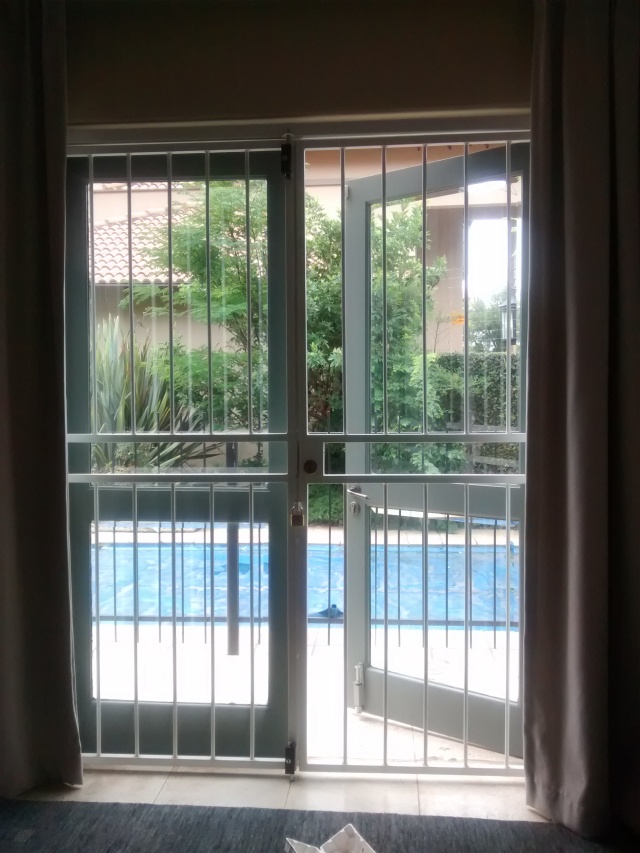
Life behind bars.
But despite all this, you can live your life relatively normally so long as you follow basic guidelines – don’t walk anywhere at night, stay away from certain areas, keep your car doors locked at all times etc. But there is a certain tension that goes with always having to be “aware” that means it is necessary to take a break from city life as often as you can. Will I ever get used to it? Not completely. One of the things I am most looking forward to when we return to the UK on holiday is being able to open the front door and just walk.
So those are my experiences of the “practicalities” of life in South Africa, I would love to hear about yours. In future posts I will look at some of the other chapters in my book, including finding domestic staff, keeping my sanity and that huge subject: schooling.




